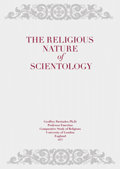A marriage ceremony, which may popularly be thought of as religious and to be conducted in church, is not primarily religious. It is a secular contract, between two consenting parties and before two witnesses. The early church realised this and followed the state practice for many centuries, though often with a church blessing later. Only the post-Reformation Council of Trent decreed that Christian marriage must be performed in a church and by a priest. Modern Protestants, and missionaries, who have tried to impose a church marriage on converts, have been following the decrees of Trent. Even if marriage is held to be a sacrament, a priest and a church are not essential to its validity in Christian theology. The celebrants of the sacrament are the husband and wife who minister vows to each other and this may be done religiously anywhere.
Many countries which have a Christian tradition yet insist on marriage ceremonies being conducted by a secular authority, a registrar, magistrate or mayor. Even where there is an established church, marriages may be performed in other chapels or by a registrar. It is not therefore to the marriage service of Scientology that we should look for evidence of religious belief and practice.
The two most significant services are christening, or naming of children, and burial of the dead. Beliefs associated with the two go deep into our nature and history, and they shape the most common sacraments of mankind. Scientology believes in the thetan, its own word for the immortal soul, derived from the eighth letter of the Greek alphabet, theta, and perhaps considering its symbolical oval shape. The service says that “the main purpose of a naming ceremony is to help get the thetan oriented. He has recently taken over his new body”. The thetan is introduced to his body, his parents and his godparents. Plainly there is here a spiritual and not a materialistic ceremony.
Similarly the funeral service of Scientology makes spiritual claims. The soul is helped on to a future life: “Go now, dear (deceased) and live once more, in happier time and place”. Belief in some kind of spiritual nature in man, which survives death, is perhaps the oldest and most prevalent religious belief of mankind. There is probably no tribe or people that has not held one form or other of belief in life after death, and the presence of such a belief is a very clear sign of religion.
The ancient Egyptians (not the moderns who are Muslims) believed in souls and gods, and were religious, as are the Buddhists who strictly may be said to believe in neither, at least in a Western sense. But both had religious rituals, to which Scientology deliberately approximates.





























